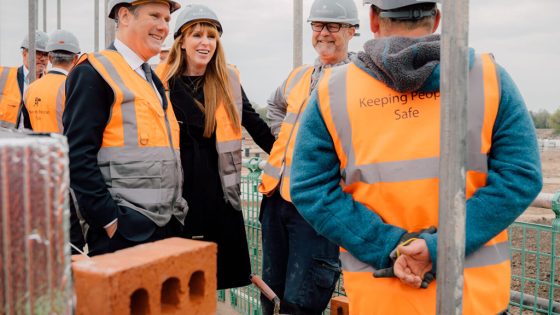The construction industry’s appetite to invest has not risen following July’s general election, according to three-quarters of firms surveyed on the government’s first 100 days in office.
Ministers were warned that bleak statements about the government’s finances had made bosses uncertain about committing to major investment plans.
An exclusive survey by multidisciplinary consultancy Pick Everard and planning and development consultancy Lichfields revealed that 74 per cent of respondents reported that gloomy rhetoric ahead of the Autumn Budget on 30 October had increased market uncertainty.
The same number of industry decision-makers also agreed that the change in government had not boosted their appetite to spend. Respondents to the survey included contractors, developers, consultants and clients.
Uncertainty was cited as the biggest barrier to investment (37 per cent) and 24 per cent warned that constraints on local authority capital budgets were also holding firms back from committing resources.
However, one industry analyst also said there had been a “palpable change of tone” from the new government team.
Ciaran Gunne-Jones, senior director and head of economics at Lichfields, said: “It has been a busy few months of policy announcements and decisions by the new government, which contrasts with the hiatus that came before it.”
Early announcements on mandatory housing targets and planning could be a “game-changer”, he said.
But Gunne-Jones added: “The new administration has also been striking a very cautious tone regarding the state of the public finances and the bandwidth for future spending commitments, and this has created uncertainty, which looms large across the sector.”
Another critical issue is that the economy has yet to increase confidence despite an interest rate cut and the prospect of more to come. Among contractors and consultants, 62 per cent stated that the Bank of England’s decisions had not resulted in the delivery of attractive finance options in the market.
Ahead of the Autumn Budget, the majority of industry leaders (76 per cent) called for clear commitments to fund schemes such as the 2030 clean-energy programme.
A total of 37 per cent said the government should raise capital spending and 34 per cent called for more clarity on spending plans.
Gunne-Jones said: “The downward path for interest rates currently looks set to be fairly gradual.”
He added that “more funding certainty on existing and pipeline schemes, and a clearer indication of the direction of travel for Labour’s promised industrial strategy”, would need to be included in the Autumn Budget.
The findings come as the government ramps up efforts to entice international investors to back major infrastructure projects with a summit.
Ministers are now beginning to share more details, including long-term plans.
Last week chief secretary to the treasury Darren Jones said the government would publish a 10-year infrastructure strategy next spring alongside its multi-year spending review.
“It will be long-term, it will be joined up and it will be strategic – not directionless [but heralding] a decade of national renewal,” Jones said.
With the survey came a warning that the construction industry was only slowly recovering from a recession that had wiped out hundreds of firms – including ISG last month.
Gavin Mason, operations director at Pick Everard, said: “Recent industry casualties do bring into sharp focus how realistic the government’s plan to expand housing and infrastructure construction is, especially with viability appraisals already so challenging in a changeable interest-rate environment.
“Such collapses also draw attention to the ability of construction companies to trade through many years of poor underlying performance by expanding their turnover.
“Fundamentally this is an unstable way to manage the delivery of projects, train the necessary people to deliver the work and control the cost of projects.”
Looking ahead to the next 100 days, Gunne-Jones said the sector “believes the government must urgently provide greater clarity on future capital spending and continue to focus on policy decisions”.
These include the Building Safety Act and adopting the new National Planning Policy Framework.
He said: “This will be critical to kick-start economic growth into 2025.”

